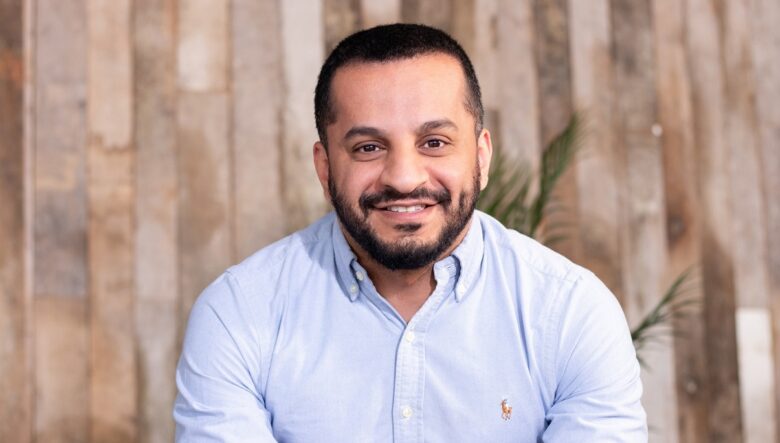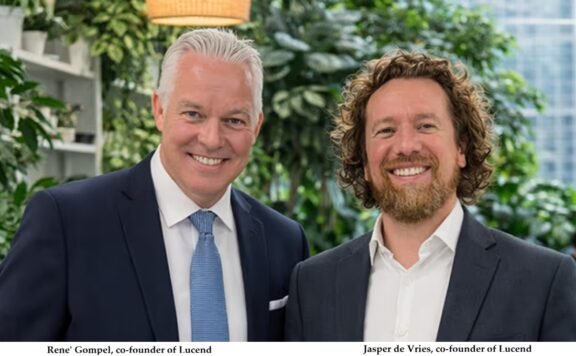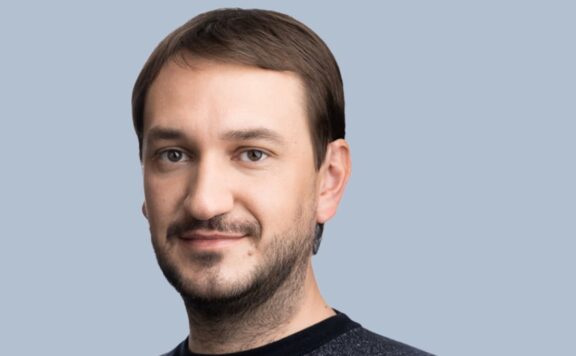Dr Zaid Al-Fagih, Co-Founder and CEO of Rhazes AI, founded the company after witnessing NHS clinicians struggle under pressure. Rhazes AI uses voice and generative AI to streamline care and reduce errors.
What inspired you to start Rhazes AI, and how has your experience as an NHS doctor shaped your vision?
Doctors in the UK are extremely time-stretched. For example, GPs often have about 10 minutes to see a patient, take notes, make a diagnosis, initiate referrals, and complete all the relevant paperwork, all while managing the patient interaction itself. I felt this strain firsthand as a doctor and recognised the urgent need for a solution.
I also studied health systems from a management and policymaker perspective, which helped me understand how these challenges manifest themselves upstream. Rhazes AI was born out of an acute awareness of the problems driving inefficiency in the NHS.
Around the same time I became a doctor in 2017, voice ambient technology and Gen AI were rapidly advancing. OpenAI had launched just two years prior, and the potential of Large Language Models (LLMs) was beginning to emerge. Around one in ten people die due to a diagnostic error, and AI presents an opportunity to improve diagnoses and reduce the administrative burden that can lead to mistakes.
I wanted to harness this technology to solve the problems that doctors like me face every day and be at the frontier of advancing health systems in the right direction.
Can you explain the core technology behind Rhazes AI’s clinical notetaking tools and how it benefits healthcare providers?
Rhazes AI works through a web app or can be embedded within a hospital or clinic’s patient record system. The notetaking feature – one of our many features – is powered by ambient voice technology, which detects and distinguishes multiple voices from background noises. The software records and transcribes patient-doctor conversations, then summarises the consultation and generates documentation such as notes or referrals.
What sets Rhazes AI apart from traditional scribing tools is its advanced clinical intelligence and high degree of customisability. Unlike standard scribes, Rhazes AI offers real-time second opinions, robust diagnostic support, and tailored patient management plans. The system integrates consultation notes with historical patient data.
Additionally, Rhazes AI allows clinicians to create custom tools, agents, guidelines, and document templates to meet their specific needs and specialties, making it uniquely adaptable to diverse healthcare environments. This significantly reduces clinician workload while enhancing the quality and accuracy of clinical decision-making.
What are the main challenges UK healthcare startups face when navigating the NHS data infrastructure and compliance?
In a nutshell? Red tape, siloed data, and outdated medical regulations that weren’t designed with AI in mind.
NHS England requires AI scribes to be registered as Class 1 medical devices, the same category as stethoscopes or wheelchairs. While well-intentioned, this approach makes it nearly impossible for doctors to use AI-powered tools for tasks like clinical notetaking without full medical device certification, even if they rely on widely accepted models like the ones that power ChatGPT – which bizarrely isn’t a medical device according to regulators, even though it uses exactly the same technology.
Then there’s the cost of navigating all the bureaucracy. Startups are forced to raise bloated fundraising rounds to pay consultants, just to navigate these complex regulations and stay compliant. On top of that, NHS infrastructure is ill-equipped to AI integration, with legacy IT systems and fragmented data and decision-making across hospital trusts making it difficult to scale solutions.
How does the regulatory and technological environment in the Gulf differ from the UK, and why is it more conducive to health AI innovation?
It’s drastically easier to deploy health AI solutions in the Gulf. The UAE, for example, has streamlined data policies and has a strong appetite for innovation, with over 40% of businesses there already using AI solutions in some capacity. Qatar, while more cautious, sits somewhere between the UK’s regulatory conservatism and the UAE’s pro-business stance. Its tech sector is rapidly growing and is receiving a lot of government support.
This creates a fertile ground for innovation. Healthcare systems in the Gulf offer companies the space and access to robust patient datasets to develop, pilot, and launch impactful AI solutions without the barriers that exist in most of Europe.
What opportunities do you see for Gulf investors to collaborate with UK healthtech startups, especially those frustrated with the UK system?
There are powerful synergies to be unlocked. Gulf nations have modern healthcare systems and ambitious plans to integrate AI. However, many face a shortage of the research and entrepreneurial talent needed to bring these plans to life. At the same time, UK startups often struggle with domestic regulation and need alternative markets to scale.
Beyond offering angel funding, Gulf investors could actively encourage UK founders to set up operations in cities like Abu Dhabi, Riyadh, Dubai, or Doha, where deployment is faster and opportunities are abundant. There’s also a role to play in educating UK startups about the potential in Gulf healthtech sectors, which are too often overlooked.
How is Rhazes AI leveraging the growing AI ecosystem in Qatar and the Gulf to accelerate its growth and impact?
Qatar’s Digital Agenda 2030 aims to transform public services with AI, and the government is investing heavily across sectors, from education and energy to finance and healthcare.
This commitment has created a clear runway for us to integrate Rhazes AI across Qatari healthcare institutions. The regulatory environment is straightforward, funding is available, and, crucially, healthcare IT infrastructure is interconnected. This data is accessible, safeguarded, and scalable, helping us serve clinicians and enabling them to spend more time with patients by streamlining their workflow.
What role do you think the Gulf can play in becoming a global proving ground for health AI solutions?
The Gulf is uniquely positioned to become a global leader in health AI. It offers a streamlined regulatory environment, low barriers to entry for companies, world-class infrastructure and ambitious healthcare modernisation initiatives. That combination makes it an ideal testing ground for cutting-edge medical technologies.
Global players are already taking notice. Microsoft, for example, has launched an AI medical app, Hayat, to monitor health metrics like nutrition intake. Meanwhile, Proximie has introduced smart glasses that enable remote observers to follow surgeries in real-time. The Gulf is garnering a reputation as a testing ground for cutting-edge medical tech.
With recent UK government initiatives to improve NHS AI infrastructure, how do you see the competitive landscape evolving for UK and Gulf-based startups?
The UK AI Opportunities Action Plan promises to unlock much-needed investment in data centres, workforce upskilling, and regulatory reform. But while the ambition is commendable, implementation is likely to be slow, just as we’ve seen before. A proposed AI Bill has already been delayed until next year.
Over time, these initiatives may help the NHS integrate AI more effectively. But the current culture of caution and regulatory complexity will remain a major barrier. The problem isn’t just the UK’s AI ambitions; it’s the persistent scepticism with the system, which continues to stifle innovation. There is a saying that goes: America innovates, China imitates, and Europe regulates. I fear there might be more truth to the last part than we’d like.
What advice would you give to healthtech entrepreneurs looking to expand internationally, especially between the UK and Gulf markets?
Start building your Gulf network early. Attend healthtech conferences, expos and events to make connections. In the Gulf, business culture, personal trust and mutual relationships are extremely important. If you’re seeking funding, an investor may hesitate without a personal introduction or mutual connection.
This is even more critical in the healthcare sector, where public and private healthcare contracts are high stakes. You will need to not only prove the value of your AI application but also demonstrate that you’re a reliable and honest partner.
Looking ahead, what are Rhazes AI’s key milestones and vision for the next 3-5 years in transforming healthcare with AI?
We’re targeting significant growth, especially in Gulf markets, where we’re actively seeking new contracts, investments and partnerships. Populations are growing and ageing, placing unprecedented pressure on healthcare systems.
AI is becoming increasingly central to making healthcare more efficient and scalable, and there will be a growing demand for tools that help doctors do more with less. Our vision is for Rhazes to be in the hands of every doctor, everywhere.
We’ve recently launched a new product, and we will be adding exciting new features to it in the coming weeks and months.





